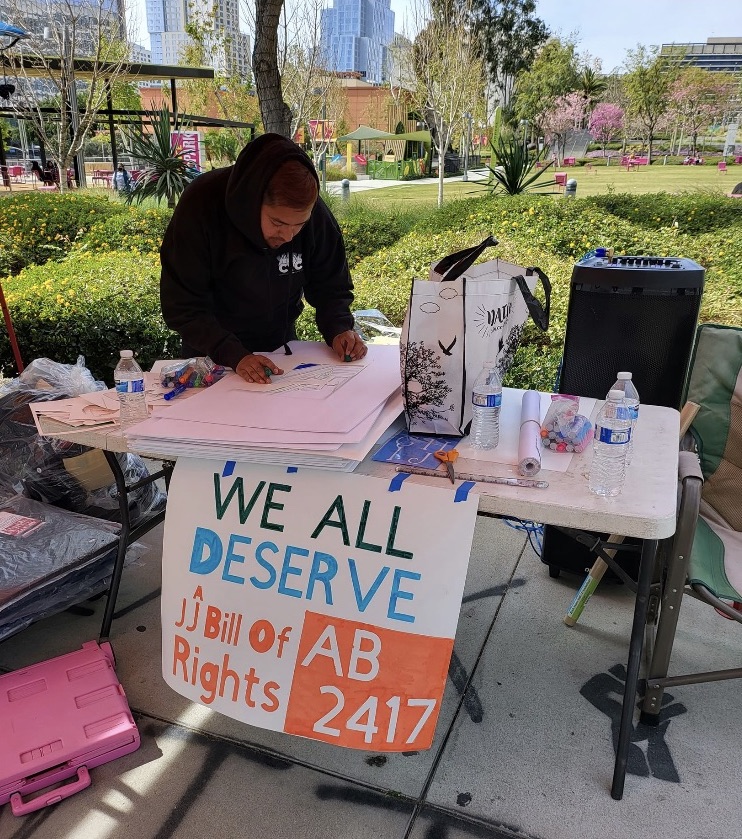
California is closing its state youth prisons in 2023. After that, all juvenile cases will be handled at the county level. It is a big change to the youth justice system, and there are many laws that need to be amended to reflect that change. In current law, there is a “Youth Bill of Rights” for youth who are locked up, but it only applies to state youth prisons. The “Youth Bill of Rights” puts the rights in one place to ensure that youth know about their rights, and is written in a way that is easy for youth to understand. It also ensures they are able to connect to the state ombudsperson’s office. When the state youth prisons close, we will need a Bill of Rights for youth who will be at the local level.
AB 2417 will expand the bills of rights for youth in prison to encompass all youth, including foster youth. It will ensure that youth in prison and foster youth will know their rights. If enacted, the bill will make sure that none of the youth’s rights are being infringed upon, taken advantage of, or manipulated. This bill will fix an omission of SB 823. The law, which was meant to close the state Division of Juvenile Justice (DJJ) youth facilities, was enacted quickly in a budget bill. SB 823 did not include many statutes that reflected the effects of these closures and its move from state to county custody. AB 2417 makes sure that youth won’t lose important rights just because their cases are handled at the county level.
When youth are locked up, they should be informed of those rights. State and federal law provide basic protections for youth who are incarcerated, ranging from the right to enough food to access to education and good health care. Existing law spells out rights for youth who are locked up, but the rights are spread over several codes and in long, complicated, and hard to understand regulations. This bill will require all 58 counties in California to post the “Youth Bill of Rights” in their facilities and make sure youth get copies. This bill will require counties to inform youth about an ombudsperson. In 2020, the California legislature passed a law that created an ombudsperson office in the newly-formed state Office of Youth and Community Restoration to investigate the concerns of youth, families, staff, and others. This is a crucial state oversight role, ensuring that youth in all 58 counties have someone they can turn to if there are problems. Being locked up as a young person means being separated from family, teachers, and other caring adults and friends in the community. AB 2417 will empower young people by letting youth know how to protect themselves and where to turn for help.
Knowing one’s rights can go a long way toward helping a person be their own advocate. It also communicates to young people that they matter. This bill will help create consistency and equity across all 58 counties by installing a uniform requirement for notifying youth about their rights. By closing DJJ youth facilities and putting all authority for juvenile justice cases on the 58 counties, it means California will have 58 juvenile justice systems. If California does not pass this bill, there will be no Bill of Rights for youth who are locked up. There is a Bill of Rights for foster youth, but not for youth in the delinquency system. Youth in the child welfare system and youth in the juvenile justice system are often the same youth with similar needs. Youth in both systems should be protected.
When youth enter the juvenile hall, it is often because they have slipped through the cracks of a number of interventions that are meant to help them, whether that is school, community-based interventions, or the child welfare system. In some places, the rights of youth are being violated. Making these rights well-known is an important way to shine a light on violations. Making these rights common knowledge will help ensure that facilities stay in compliance with them.





